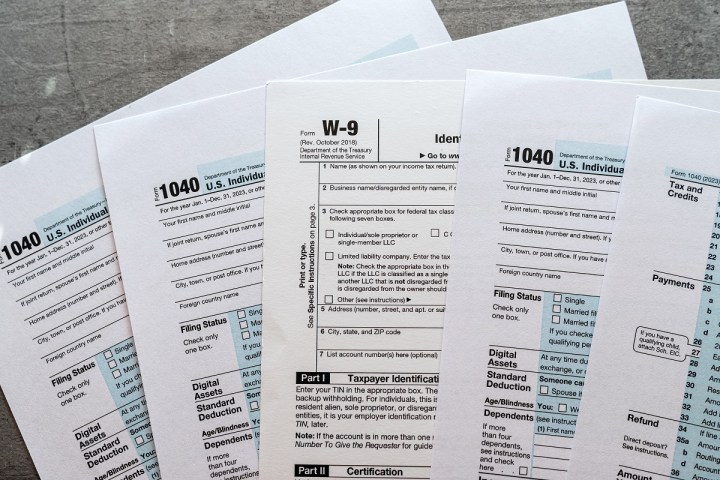
Your last-minute guide to Tax Day
Share Now on:
Your last-minute guide to Tax Day

Unless you’re in Massachusetts or Maine, you have until midnight tonight to file your taxes.
When you do, chances are you’ll get a higher refund than usual. So far this year, taxpayers have received an average refund of $3,011, up 4.6% from $2,878 the same time last year.
The IRS is touting some expanded benefits and services for taxpayers this year, including a new free filing service, better phone service and an improved tracker to keep an eye on your tax refund.
Here are some of the changes you should know about tax season, other deadlines you need to keep an eye on, and what to do if you need to file an extension.
You can use a new government filing service from the IRS, depending on where you live
There’s a new and free online tax filing system that’s available in 12 states, including California, South Dakota and Wyoming. You can check here to see if you’re eligible. You may not be if you’re claiming certain credits or have income from gig work, as we’ve previously reported.
Marketplace spoke to Vox reporter Dylan Matthews to get a sense of how it works. His take: “I give it a solid B. What it doesn’t have is a lot of features. But if you have a simple tax situation, it can handle it.”
If you can’t go through the IRS, are some other free options you can use. You can complete Free File Fillable Forms, which ProPublica calls “electronic versions of IRS paper forms,” or use one of eight tax preparation services that the IRS offers through partnerships with other companies. Some have income limits, you can fill out the form here to find out which service you may be eligible for.
How to keep track of your refund
After you file, use Where’s My Refund? to keep track of your refund.
The IRS says it issues 90% of its refunds under 21 days, but notes that some tax returns “may require additional review” and arrive later.
Your refund could be delayed if it includes errors on your form or the IRS suspects that the form may be part of an identity theft scheme, among other reasons. The Taxpayer Advocate Service, an independent organization housed within the IRS, said that victims of tax-related identity theft have to wait an average of 19 months to get their refunds.
You can still contribute to a traditional IRA or a Roth IRA
For the 2023 tax year, today is also your last chance to contribute to an individual retirement account, or a Roth IRA, investment vehicles separate from any retirement plans your employer may offer.
You have to contribute your pre-tax dollars to a Traditional IRA, which can reduce your taxable income, but your money will get taxed when you withdraw it. Roth IRAs take after-tax income, so in retirement you can withdraw money tax-free.
The max IRA contribution stands at $6,500, although the limit jumps to $7,500 if you’re 50 years or older by the end of this year. For the 2024 tax year, the cap rises to $7,000, or $8,000 for those age 50 and above.
How to file an extension
If you need more time to file your taxes — maybe because you need to get certain documents in order — there are ways to get an extension. But the IRS says it only offers an extension to file, not an extension to pay. You may get hit with a penalty if you don’t file on time.
There are three ways extend your filing deadline to Oct. 15. One option is to pay what you owe online, and then check a box noting that you are paying in order to get an extension.
You can also use the agency’s Free File Program (not to be confused with Direct File) to electronically request an extension. Or, you can request an extension through what’s known as Form 4868 and filing that via mail, the IRS’ e-file service or a tax professional.
If you’re in a “federally declared disaster area,” currently serving in the military or living outside the U.S. you may qualify for an automatic extension.
What if I don’t file in time?
The IRS will be in touch if you fail to file on time, and penalties are based on how late you file and how much you owe in unpaid taxes.
You will get penalized 5% of your unpaid taxes for each month or part of a month your tax return is late. However, the penalty “won’t exceed 25% of your unpaid taxes.”
If you end up getting a refund from the government, there is typically no penalty for failing to file.
There’s a lot happening in the world. Through it all, Marketplace is here for you.
You rely on Marketplace to break down the world’s events and tell you how it affects you in a fact-based, approachable way. We rely on your financial support to keep making that possible.
Your donation today powers the independent journalism that you rely on. For just $5/month, you can help sustain Marketplace so we can keep reporting on the things that matter to you.












